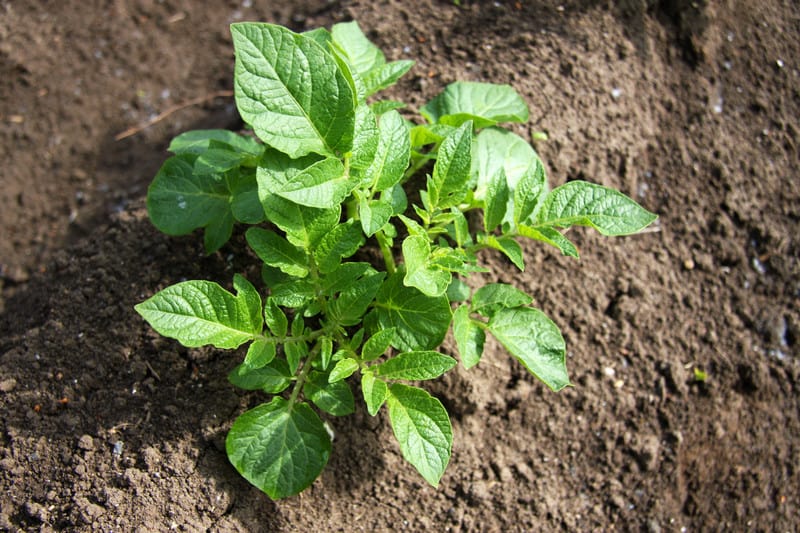
Gardening organically is the best option for vegetables, flowers and ornamental plants. This form of agriculture follows the principles of organic farming and uses organic fertilizers as well as pest management and soil building. It preserves heirloom varieties. This type of gardening is great for reducing food costs and water consumption, as well as promoting the health and environment. However, organic vegetables don't have to be the only ones that can be grown. There are many other types that can be grown with little effort.
The first step in organic gardening is knowing how to get rid of pests. The best way to do this is to use companion plants. This type will prevent pests and improve the flavor of your plants. Basil and amaranth, two of the most well-known companion plants for tomatoes, are also very popular. These plants will make your tomatoes more productive and protect them from diseases. It is important that you note that some plants are harder to grow than others. People who have limited gardening knowledge should select plants that are easy to grow and hardy.

Knowing the soil's composition is an important step in organic gardening. The right plants are needed for your location. You will find that gardens are characterized by a gradient of soil quality, light/moisture, temperature, and other factors. These factors are important to ensure that your plants thrive and stay healthy. The more knowledge you have, the more successful you will be at growing vegetables! Don't forget about checking the type and size of your compost pile.
Organic gardening is also plagued by insects. You'll need to protect your ripening fruits from predators by using physical barriers and biological controls, such as Bacillus thuringiensis (Bt), which kills caterpillars and other insect pests. Rotating your crops will help to prevent them from becoming stressed. A garden with too much vegetation may not be sustainable. Organic gardening is a great way to control pests.
Organic gardening requires lots of care. For a successful garden, you must keep it clean and free of disease. You should regularly remove diseased or dying plants, and keep the garden weed-free. A variety of vegetables and plants will encourage biodiversity, weed control, and attract beneficial insects. Biodiversity can also be enhanced by using different soils and environments. The right soil nutrients can help your plants thrive.

Quality soil is a key aspect to organic gardening. Use untreated, open pollinated seeds to preserve the soil's natural fertility. You will also be avoiding the use synthetic pesticides. Those who are serious about organic gardening should only use certified-organic seed, which are a blend of aged compost and organic nutrients. Untreated seeds can produce twice as much yield.
FAQ
How can I tell what kind of soil is mine?
The color of the soil can tell you how much organic matter it contains. Organic matter is more abundant in dark soils than those with lighter colors. Soil tests are another option. These tests assess the soil's nutritional content.
What's the difference between aquaponic and hydroponic gardening?
Hydroponic gardening uses nutrients-rich water to feed plants. Aquaponics is a system that combines fish tanks and plants to create an ecosystem that is self-sufficient. It's like having your farm right in your home.
What equipment do I need to grow vegetables?
You're not wrong. All you need are a trowel or shovel and a watering can.
Which type of lighting is best for indoor plants?
Florescent lights work well for growing plants indoors because they emit less heat than incandescent bulbs. They provide steady lighting without dimming or flickering. Fluorescent bulbs come in both compact fluorescent (CFL) and regular varieties. CFLs use up to 75% less energy than traditional bulbs.
What seeds should be started indoors?
Tomato seeds are the best choice for starting indoors. Tomatoes are very easy to grow and produce fruit year-round. If you are growing tomatoes in pots, take care when you transplant them to the ground. Planting tomatoes too early can lead to soil drying out which could lead roots to rot. Plant diseases like bacterial disease can quickly kill plants.
Statistics
- According to a survey from the National Gardening Association, upward of 18 million novice gardeners have picked up a shovel since 2020. (wsj.com)
- According to the National Gardening Association, the average family with a garden spends $70 on their crops—but they grow an estimated $600 worth of veggies! - blog.nationwide.com
- Most tomatoes and peppers will take 6-8 weeks to reach transplant size so plan according to your climate! - ufseeds.com
- As the price of fruit and vegetables is expected to rise by 8% after Brexit, the idea of growing your own is now better than ever. (countryliving.com)
External Links
How To
How to Grow Tomatoes
Tomatoes are a popular vegetable. They are easy and provide many benefits.
Tomatoes need full sun and rich, fertile soil.
Tomato plants love temperatures above 60°F.
Tomatoes like lots of air circulation around them. You can increase the airflow by using trellises, cages, or other devices.
Tomatoes need regular irrigation. Drip irrigation is a good option.
Tomatoes don't like hot weather. Maintain soil temperatures below 80°F.
Nitrogen-rich fertilizer is vital for tomatoes plants. Every two weeks, apply 10 pounds of 15-15-10 fertilizer.
Tomatoes need approximately 1 inch water per week. You can apply this directly to the foliage or through a drip system.
Tomatoes may be susceptible to diseases such as bacterial wilt and blossom end rot. Keep the soil well drained and apply fungicides to prevent these problems.
Aphids and whiteflies can cause problems for tomatoes. Spray insecticidal soap to the undersides leaves.
Tomatoes have many uses and are very delicious. Make tomato sauce, salsas, ketchups, relishes, pickles, among other things.
Growing your own tomatoes can be a fun experience.